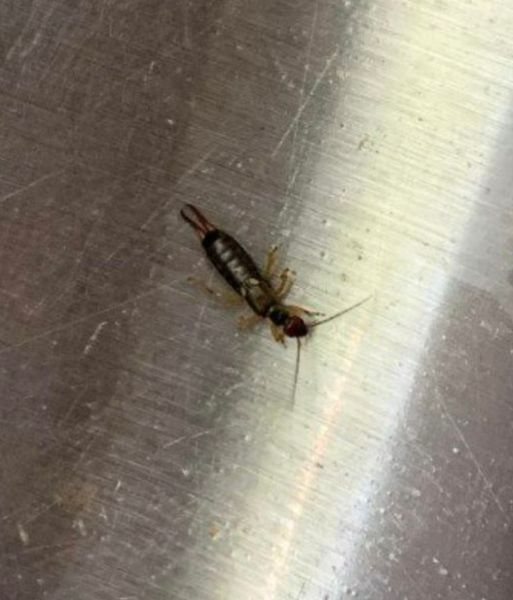Bugs are an inevitable part of life, especially if you live in rural areas or near nature. We often encounter common insects like flies and spiders, and while many of us tolerate them, earwigs tend to make homeowners uneasy.
Earwigs, recognizable by their slender bodies and pincers, are not harmful to humans despite their intimidating appearance. They don’t bite or sting, but that doesn’t make their presence any less unsettling.
Alicia Alexander, a Facebook user, shared a simple method to combat an earwig problem. Her trick? Fill a shallow bowl with half a cup of olive oil and place it outside. According to Alicia, earwigs are attracted to the oil’s sweetness but once they climb into the bowl, they are unable to escape. She shared pictures showing how many earwigs she caught in just 24 hours, and the results were impressive. In 36 hours, the number increased even more, proving how effective this simple trap can be.
However, beyond their mere presence, earwigs in large numbers can signal a more serious issue. They are attracted to moisture and rotting wood, so if you spot a lot of them inside your home, it might be time to check for damp areas or wood that could be decaying. Catching this early can prevent larger issues like mold or structural damage.
But don’t panic if you find a few indoors. Earwigs, like many insects, may simply be seeking warmth and shelter, especially in colder months. While they might be creepy, they aren’t a serious threat to your home or health. Keeping your home dry and sealing cracks can help keep these critters outside where they belong.
How to Get Rid of Earwigs
Apart from the olive oil trick, there are other steps you can take to make your home less appealing to earwigs. Since these insects are drawn to moisture, ensuring your home is well-ventilated is crucial. Leaks or areas prone to dampness should be addressed. Outside, you can reduce earwig populations by clearing away piles of dead leaves, mulch, and organic matter.
If the infestation is particularly bad, you may consider using traps, barriers, or even consulting a pest control professional. Natural remedies, like diatomaceous earth, can also help deter earwigs without harmful chemicals.
Earwig Misconceptions
Despite their scary look, earwigs are harmless. Contrary to popular belief, they do not burrow into ears or harm humans. They feed on decaying plant material and sometimes small insects, making them more of a nuisance than a danger. In fact, in small numbers, they can even help by consuming aphids and other pests in the garden.
Final Thoughts
While earwigs may give you the creeps, they don’t pose a significant risk to your health or home, unless their presence indicates rotting wood or excessive moisture. Simple preventative measures, like maintaining a dry environment and using natural traps, can keep them under control.
So, the next time you find an earwig lurking in your home, remember Alicia’s olive oil trick and keep calm—there’s no need to worry!

